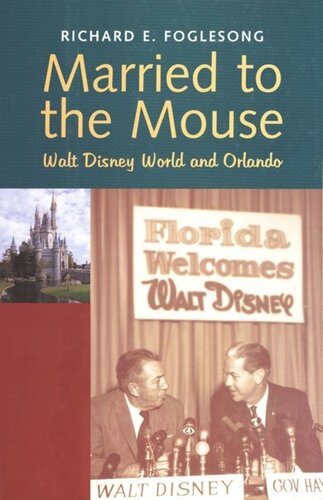

Most ebook files are in PDF format, so you can easily read them using various software such as Foxit Reader or directly on the Google Chrome browser.
Some ebook files are released by publishers in other formats such as .awz, .mobi, .epub, .fb2, etc. You may need to install specific software to read these formats on mobile/PC, such as Calibre.
Please read the tutorial at this link: https://ebookbell.com/faq
We offer FREE conversion to the popular formats you request; however, this may take some time. Therefore, right after payment, please email us, and we will try to provide the service as quickly as possible.
For some exceptional file formats or broken links (if any), please refrain from opening any disputes. Instead, email us first, and we will try to assist within a maximum of 6 hours.
EbookBell Team

5.0
88 reviewsJoined together in an economic development marriage,” Walt Disney World and Orlando, Florida, have become the world’s most popular tourist destination. This intriguing book traces the evolution of the relationship between the Disney Co. and the surrounding community since it began in the 1960s. Like most close relationships, the Disney-Orlando union has involved conflict and compromise. Richard Foglesong shows that this evolving relationship validates the adage: whom you marry affects what you may become.
Foglesong explains how Orlando leaders seduced the Disney Co. with big road projects, how the Disney Co. shielded its property from government regulation, and how the company has used the governmental powers it acquired. In short, Disney World has become a Vatican with Mouse ears,” the author declares.
In a balanced and thorough analysis of the Disney-Orlando story, Foglesong offers a critical account of how Disney has used--and also abused--its governmental immunities from the beginning of Disney World to the present under chairman Michael Eisner. Orlando’s experience with its biggest local employer raises broad questions about urban development policy. Can local leaders resist the demands of global corporations? Do privatization and deregulation offer a viable strategy for economic development? And is it possible to escape the weight of previous economic development decisions that seem to lock in, for example, more tourism and low wages, while locking out other opportunities?